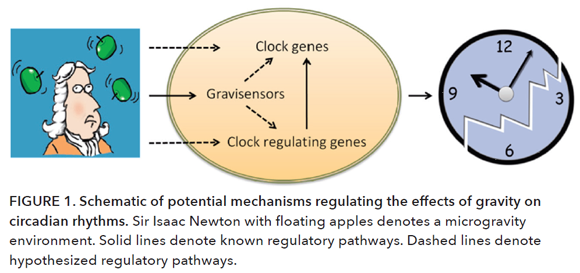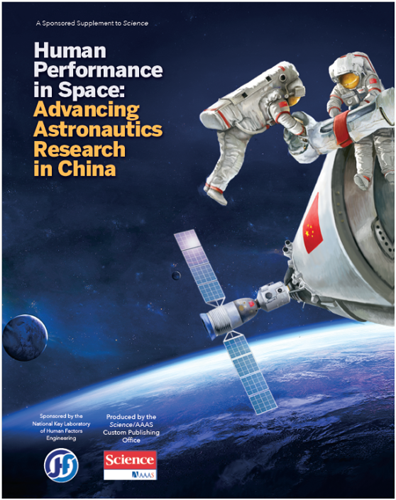Dr. Jinhu Guo published an article in Science supplemental booklet discussing the impacts of spaceflight on circadian rhythms
Source: School of Life Sciences
Written by: School of Life Sciences
Edited by: Wang Dongmei
Space exploration always fascinates humans. To demonstrate China’s advances in astronautics research and to benefit the space scientists and engineers worldwide, a sponsored supplement to
Science was published on September 14th, 2014, by the Science/AAAS Custom Publishing Office. The title of this booklet is "Human Performance in Space: Advancing Astronautics Research in China”, and the articles in the booklet introduced and summarized the progresses achieved in three aspects: 1) crew capabilities and physiological changes in space or simulated weightlessness conditions; 2) human-machine interaction and crew cognitive behavior in space; 3) Human modeling, simulation, and performance evaluation.
Dr. Jinhu Guo, a Professor of School of Life Sciences, Sun Yat-sen University, has a review article published in this special issue, which is titled “Space Meets Time: Impact of Gravity on Circadian Timing Systems”. In this article, the advances in influences on circadian rhythms by space flight or microgravity, including the associated work conducted by Dr. Guo’s lab, were summarized. Moreover, in this article, the authors proposed the main issues that are in necessity for concern in further research, for instance, the possible molecular pathways involved in the regulation of circadian rhythms under microgravity.
The possible pathways control the circadian rhythms under microgravity
China initiated its project of manned spaceflight in 1992. In the past decades, China has successfully launched manned spaceflights for five times. Now China moves towards launching a permanently manned space station which will be fulfilled in 2020. These progresses demonstrate that China has become a member of the international space powers club. In space missions, the extreme environmental factors which are dramatically different from those on Earth, impose significant influence on the physiology, cognition and performance of astronauts. The circadian rhythms and sleep are also subject to change in space, which has been known to affect the health and performance of astronauts.
Dr. Guo’s lab works on the circadian clock and circadian rhythms of humans and a filamentous fungus Neurospora crassa. Since 2010, Dr. Guo’s lab is participating in a program of National Natural Science Foundation of China (973), which is taken the lead by Astronaut Centre of China. Dr. Guo’s lab has conducted a series of experiments to elucidate the impacts on circadian rhythms by simulated weightlessness including clinostat, centrifugation, diamagnetic levitation, head-down bed rest and parabolic flights, cooperatively with some other groups. Dr. Guo’s lab also participated in the studies of the Shenzhou-9 and Shenzhou-10 missions. Through these studies, Dr. Guo’s lab found that a variety of physiological diurnal/circadian rhythms are modified under weightlessness condition, including the activity, sleep, urinal hormones and electrolytes, urination and defecation rhythmicities, and heart beat rhythmicity. Dr. Guo’s lab also firstly revealed that on a space mission the motion of human body trunk was dramatically decreased, which is crucial for future study of astronaut performance and atrophy.
The website of the issue is: http://www.sciencemag.org/content/345/6203/1522.4.summary
Cover of the booklet


